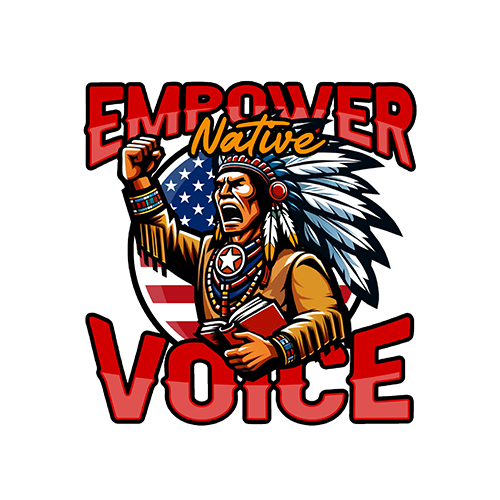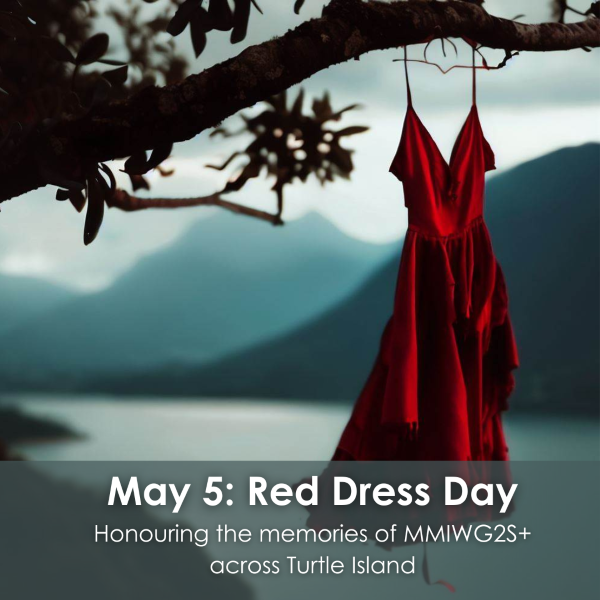Shipping Policy

Estimated Delivery Time
Estimated Delivery Time
Your Estimated Arrival = Production Time + Shipping Time.
Shipping begins once your order leaves our door. These timelines are estimates and depend on item types and delivery location.
Shipping Rates
Shipping Rates
U.S.: $6.99 shipping fee. Free shipping on orders over $100.
Canada: $9.99 shipping fee. Free shipping on orders over $149.99.
International: $19.99 shipping fee. Free shipping on orders over $200.
Multiple Items / Split Shipments
Multiple Items / Split Shipments
Items from the same production facility (e.g., T-shirts + mugs) ship together.
Different categories (e.g., shirt + handmade item) may ship separately, each with its own tracking info. We apologize for any inconvenience.
Risk-Free Shipping Guarantee
Risk-Free Shipping Guarantee
If your order doesn't arrive within 60 days, you'll receive a full refund for the item.
Email us at support@empowernativevoice.com to report a missing order - we will investigate (~3–5 business days) and resend or refund accordingly.
Customs & Duties
Customs & Duties
Prices are shown in USD and do not include local taxes or import duties. Any fees upon delivery are your responsibility. Delays due to customs are out of our control.
Wrong Address Disclaimer
Wrong Address Disclaimer
Please double-check your shipping address. We cannot guarantee reshipment or refund if an incorrect address is provided.
If the carrier returns the package due to refusal or failed delivery, we reserve the right to abandon the shipment.
Return Policy
No Returns/Exchanges for Custom Products
No Returns/Exchanges for Custom Products
All items are custom printed specifically for each customer.
Empower Native Voice does not accept returns or exchanges unless there is a defect or incorrect item.
If You Have a Problem with Your Item
If You Have a Problem with Your Item
Contact us at support@empowernativevoice.com.
Our support team will do their best to assist you.
We will replace defective or incorrect items if you provide:
- A clear photo showing the specific problem.
- Your order number.
Important Return Rules
Important Return Rules
Do not return items without contacting us first.
We are not responsible for refunds or exchanges if items are returned without prior approval.
Do not send items to the address printed on the package - it is not our return address.
Please contact us within 2 days of receiving the item at support@empowernativevoice.com so our team can assist you promptly.
Refund Policy
Accept Refund/Resend in These Cases
Accept Refund/Resend in These Cases
Damaged or Poor-Quality Item
- Product has damage or low-quality print.
- Send us photos showing the issue.
- We will arrange a refund or resend after review.
Wrong Item (Design or Product Type)
- Received a different design or product type than ordered.
- We will arrange a replacement or refund.
Wrong Size Sent (Our Mistake)
- Product size does not match your order due to our error.
- We will replace or refund the order.
Order Not Delivered in Time
- US orders: Not delivered within 35 days from purchase date.
- International orders: Not delivered within 60 days.
- We will refund or resend as per your choice.
- Additional Notes:
- Processing Time for Replacement: Same as normal orders (7 business days for processing + 2–4 weeks for delivery).
- No Extra Fee: You will not be charged any replacement/resend fee for these cases.
- Refund Processing: Issued immediately after your request is approved; funds return to your account in 3–10 days, depending on your bank.
Do not accept refund/ resent in these cases
Do not accept refund/ resent in these cases
We’re sorry, but refunds or reshipments are not accepted in these cases:
- Wrong size chosen by the customer.
- Incorrect shipping address provided by the customer.
- Customer dislikes the item material.
- Order/shipping address changes requested after shipment.
- Product returned without prior notice to Empower Native Voice Store.
Special case
Special case
Order Modifications / Cancellation
- You have 2 hours after placing your order to request changes or cancellation.
- After 2 hours or once production begins, orders cannot be modified or canceled.
Damaged / Incorrect Item
- If you receive a damaged item, poor-quality print, or wrong product, we will send a replacement or refund.
- Please email support@empowernativevoice.com within 2 days of delivery.
- Include:
+ Your order number
+ Clear photo/video showing the issue and the QR code on the package
Order Not Received
- If your order hasn’t arrived within 35 days (US) or 60 days (International) after shipping (not including 1–10 days processing), contact us at support@empowernativevoice.com for a full refund.
- Note: This does not cover incorrect addresses provided by customers or missed deliveries.
Order Lost / Returned to Sender
- Please check your shipping address carefully before confirming.
- If lost due to incorrect address, we cannot provide refund or replacement.
- If tracking shows the package was returned to sender (wrong address, failed delivery, not picked up in time), we may resend the order, but refunds are not accepted.


